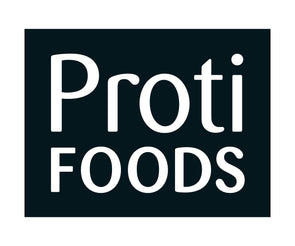
Are Protein Bars Good for Weight Loss?
Protein bars are a go-to snack for people looking to lose weight, build muscle, or maintain a balanced diet. They are convenient, portable, and packed with protein to help keep you feeling full. But are protein bars actually good for weight loss? The answer depends on the ingredients, nutritional content, and how they fit into your overall diet.
While some protein bars can be a great tool for weight management or weight loss, others are loaded with sugar, unhealthy fats, and excess calories. Understanding how to choose the right protein bar can help you maximize the benefits while avoiding potential downsides.
What Are Protein Bars?
Protein bars are nutrition bars that contain a significant amount of protein, typically sourced from whey, casein, soy, pea, or other plant-based proteins. They are designed to serve as a convenient snack or meal replacement for people who need a quick and nutritious option.
Protein bars vary widely in their ingredients, macronutrient ratios, and calorie content. Some are formulated for athletes needing high energy, while others are tailored for weight loss with lower calories and higher fiber.

Pros and Cons of Protein Bars
Benefits of Protein Bars
High Protein
Protein is crucial for weight loss because it helps maintain muscle mass while promoting fat loss. It also increases satiety, meaning you feel full for longer, which can help prevent overeating. Many protein bars contain between 10–20 grams of protein, making them a satisfying snack.
Low in Calories
Some protein bars are specifically designed for weight loss and contain fewer calories compared to traditional snacks like chips or candy bars. A well-balanced protein bar can help curb hunger without adding excessive calories to your daily intake.
Contains Fiber
Fiber is another important component for weight loss, as it aids digestion and promotes a feeling of fullness. Many high-quality protein bars are higher in fiber, helping to support digestion and promote further feelings of fullness.
Considerations for Consuming Protein Bars
Sugar Content:
Not all protein bars are created equal. Some brands pack their bars with added sugar, artificial sweeteners, or high-fructose corn syrup, which can lead to blood sugar spikes and increased cravings. When choosing a protein bar, look for those with minimal added sugars.
Processed Foods:
Many protein bars contain processed ingredients, preservatives, and artificial flavors to enhance taste and shelf life. While occasional consumption is fine, relying on processed foods too often may not be the best choice for long-term health. Opt for bars with natural, whole-food ingredients when possible.
Individual Needs:
Everyone's nutritional needs are different. If you're using protein bars for weight loss, consider your overall diet and calorie intake. Some bars may be too high in calories for a snack but could work as a meal replacement. Others may contain allergens or ingredients that don’t sit well with your digestive system.

Types of Protein Bars
There are several types of protein bars, each catering to different dietary needs:
-
Low-Calorie Protein Bars: Designed for weight loss, these bars are lower in calories and higher in fiber to keep you full.
-
Meal Replacement Bars: Typically higher in calories and nutrients, these bars can substitute for a full meal.
-
Keto Protein Bars: Low in carbs and high in fat, ideal for those following a ketogenic diet.
-
Plant-Based Protein Bars: Made with pea, soy, or other plant proteins for those who avoid dairy or animal products.
-
Performance Protein Bars: Formulated for athletes and fitness enthusiasts, these bars contain higher amounts of protein and carbohydrates for energy and muscle building.
Read Also: The Ultimate Guide to Choosing the Best Keto Protein Bars
Picking the Best Protein Bar for Weight Loss
When selecting a protein bar to support weight loss, keep these factors in mind:
-
Protein Content: Aim for at least 10–20 grams of protein per bar to help with satiety.
-
Calorie Count: Choose bars with around 150–250 calories if you're using them as a snack.
-
Sugar Levels: Look for bars with less than 5 grams of added sugar.
-
Fiber Content: A bar with at least 3–5 grams of fiber can help with digestion and fullness.
-
Ingredient Quality: Opt for bars with whole-food ingredients like nuts, seeds, and natural sweeteners instead of artificial additives.
Proti Foods offers a variety of high-protein snacks, including protein bars that are specifically designed for weight loss and healthy eating. Our products are formulated with high-quality ingredients to support your weight management and weight loss goals.
FAQs
Is it Okay to Eat a Protein Bar Every Day?
Yes, eating a protein bar daily is fine as long as it fits into your overall diet and provides balanced nutrition. However, it's best to mix in whole-food sources of protein and fiber to ensure you're getting a variety of nutrients.
What is the Best Snack for Weight Loss?
Protein bars are a great snack choice for weight loss, thanks to their high-protein content and convenience. Proti Foods also offers a range of pre-portioned high-protein snacks beyond bars, including chips, puddings, and shakes.
What Protein Bars are Easy on the Stomach?
Protein bars made with natural ingredients and free from artificial sweeteners, sugar alcohols, or excessive fiber are usually easier on the stomach. If you have digestive sensitivities, opt for bars with simple, whole-food ingredients and lower fiber content.
